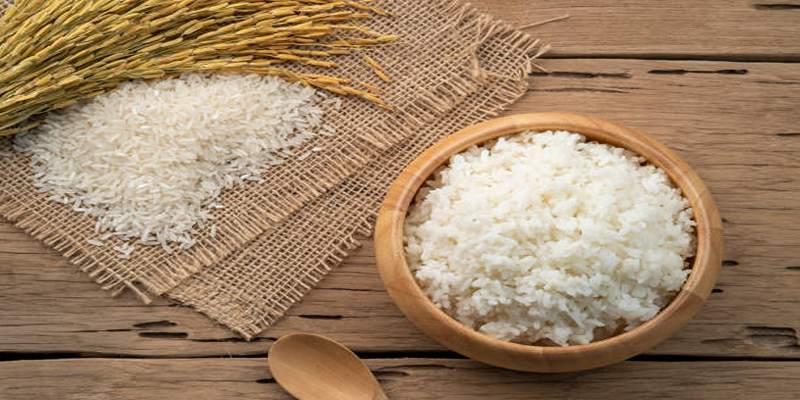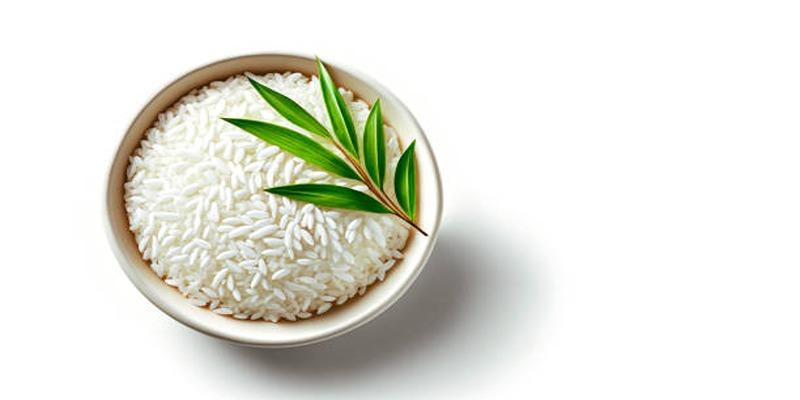Today jasmine rice enjoys great popularity in Asia due to its special fragrance like jasmine, and rather sticky texture. As it has large, pointed grains and it becomes a little sticky when cooked, it is a popular ingredient that is used across the globe. There is increased usage of Jasmine rice even if it comes with appealing characteristics when processed such as health-wise. Being one of the most important groups of carbohydrates, rice can frequently act as the basis for many recipes, including aromatic curries and bright-styled wok dishes. The article seeks to investigate the health benefits associated with the use of Jasmine rice in today's society enhancing the consideration of the rice's nutritional value and its preparation.
Nutritional Profile

Jasmine rice's nutritional profile highlights its role as a key component in balanced meals. Understanding its macronutrients and micronutrients is crucial for appreciating its dietary contributions.
Macronutrients: Carbohydrates, Proteins, and Fats
Jasmine rice primarily provides carbohydrates, which are essential for energy production. In addition to its carbohydrate content, it offers modest amounts of protein and negligible fat. Here is a breakdown of its nutritional components:
- Carbohydrates: Jasmine rice is a rich source of carbohydrates, supplying energy for daily activities.
- Protein: Although not high in protein, Jasmine rice contributes to the protein intake as part of a varied diet.
- Fats: Contains minimal fats, making it a low-fat food option.
Micronutrients: Vitamins and Minerals Present in Jasmine Rice
Jasmine rice contains several important micronutrients, which contribute to its nutritional value. Here's a look at some of the vitamins and minerals found in Jasmine rice:
- Vitamin B1 (Thiamine): Essential for energy metabolism and nerve function.
- Vitamin B3 (Niacin): Plays a role in DNA repair and stress hormone production.
- Manganese: Important for bone formation and nutrient metabolism.
- Magnesium: Supports muscle and nerve function, as well as heart health.
- Iron: Crucial for oxygen transport and energy production.
Health Advantages
Jasmine rice offers several health advantages that make it a favorable dietary choice.
1.Energy Source Due to High Carbohydrate Content
Jasmine rice is an excellent energy source, primarily due to its high carbohydrate content. Carbohydrates are the body's preferred energy fuel, essential for powering daily activities and maintaining proper body function. The consumption of Jasmine rice can provide a quick energy boost, making it a suitable choice for physically active individuals or those needing sustained energy throughout the day.
Consuming Jasmine rice can help maintain stable blood sugar levels when paired with proteins and healthy fats, enhancing its energy-providing benefits. This balance is crucial for preventing energy dips that lead to fatigue and reduced performance.
2.Presence of Antioxidants
Jasmine rice is not only prized for its taste and texture but also for its antioxidant properties. Antioxidants are crucial in combating oxidative stress in the body, which can lead to chronic diseases and aging. The grains contain compounds that help neutralize free radicals, thereby reducing the risk of inflammation and cellular damage.
Incorporating Jasmine rice into meals provides an additional layer of protection against potential oxidative harm. While it may not contain as many antioxidants as fruits and vegetables, pairing Jasmine rice with antioxidant-rich foods can enhance its protective effects. This combination supports a well-rounded diet aiming to ward off illness and boost overall health.
3.Potential Benefits for Gluten-Sensitive Individuals
Individuals with gluten sensitivity or celiac disease often face challenges in finding suitable carbohydrate sources, but Jasmine rice can be an ideal option. As a naturally gluten-free grain, Jasmine rice provides a safe alternative for those who need to avoid gluten, allowing them to enjoy hearty meals without the adverse effects of gluten exposure.
The soft and moist texture of Jasmine rice makes it an appealing choice for creating delicious, gluten-free dishes that can be paired with various proteins and vegetables. Its adaptability in diverse recipes supports dietary variety, which is important for maintaining an enjoyable and balanced diet for individuals sensitive to gluten.
Considerations

Glycemic Index and Its Impact on Blood Sugar Levels
One of the considerations when consuming Jasmine rice is its glycemic index (GI), which is a measure of how quickly a carbohydrate-containing food raises blood glucose levels. Jasmine rice has a relatively high GI, which means it can cause a rapid increase in blood sugar levels after consumption. This is an important factor for individuals managing diabetes or those who are looking to control their blood sugar levels. It may be beneficial to pair Jasmine rice with foods high in fiber, protein, or healthy fats to mitigate its glycemic impact and promote a slower release of sugar into the bloodstream.
Comparing with Different Types of Rice
Compared to other varieties of rice, Jasmine rice generally has a lower fiber content. For instance, brown rice, a whole grain, retains its bran layer, resulting in higher fiber content, which aids digestion and provides a more prolonged feeling of fullness. This higher fiber content in other rice types can contribute to better glycemic control and improved heart health. Therefore, individuals seeking to increase their fiber intake might consider consuming Jasmine rice in conjunction with high-fiber vegetables or legumes or opting for whole grain versions of Jasmine rice.
Wrong Cooking Methods
The nutritional benefits of Jasmine rice can also be influenced by the method of preparation. For optimal nutrient retention, it is advised to use cooking methods that preserve vitamins and minerals, such as steaming or boiling with minimal water. Overcooking can reduce the nutritional value by leaching out water-soluble nutrients like B vitamins.
Additionally, incorporating healthy cooking oils and spices may enhance the flavor and nutritional profile. It's essential to be mindful of added ingredients that can increase calorie content or alter the glycemic impact, ensuring Jasmine rice remains a nutritious part of a balanced diet.
Conclusion
Jasmine rice serves as a versatile and nutritious grain that offers numerous benefits when included in a balanced diet. It provides a reliable source of energy, while its antioxidant properties contribute to overall health. Particularly advantageous for gluten-sensitive individuals, Jasmine rice also complements meals by enhancing flavors and dietary variety. However, due consideration should be given to its glycemic index, fiber content, and preparation methods to maximize its health benefits. With mindful consumption and pairing strategies, Jasmine rice can be a valuable component in promoting wellness and supporting long-term dietary goals.







